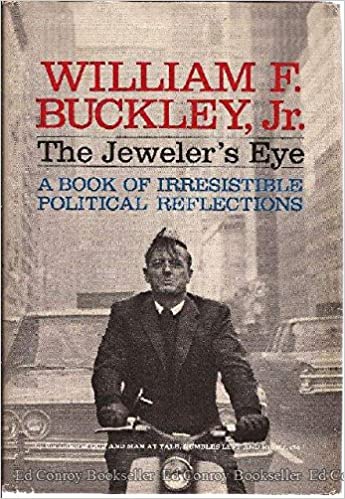From his article in The Jeweler’s Eye entitled The Politics of Beauty, conservative author, and commentator William F. Buckley, Jr. pointed out that, “Billboards are acts of aggression, against which the public is entitled, as a matter of privacy, to be protected. If a homeowner desires to construct a huge Coca-Cola sign facing his own homestead rather than the public highway, in order to remind him, every time he looks out his window, that the time has come to pause and be refreshed, he certainly should be left free to do so. But if he wants to face the sign toward us, that is something else . . . .”


For the past several decades, every billboard poll agrees with Buckley’s observations, revealing that 75% or more people don’t want commercial advertising billboards in their communities. Even before polling, the U.S. Supreme Court (SCOTUS) upheld local governmental authority to regulate or even prohibit commercial advertising billboards if the ordinance was “narrowly tailored” with a “significant governmental interest”. Safety and aesthetics were recognized as significant governmental interests.
Even so, billboard companies have aggressively litigated local authority over billboards, and in the last ten years, they were making some headway in a handful of circuits but not in others, basically a mixed bag.
Their latest attempt arose out of a lawsuit by Reagan Outdoor against Austin, Texas. Although the district court held in favor of the city, the Fifth Circuit reversed using a stricter review standard than the intermediate standard announced by SCOTUS decades before. Reagan had challenged Austin’s on-premise (local business signs) vs off-premise billboard sign code distinction as unconstitutional and convinced the Fifth Circuit that it should follow a 2015 SCOTUS case (Reed v. Town of Gilbert, 576 U.S. 155) dealing with illegal bandit signs in the public ROW and declare the on/off-premise designation as facially unconstitutional.

Reagan lost its legal claim. Attached is the April 21, 2022, SCOTUS decision in the Austin v Reagan case clarifying that the legal standard for appellant review is intermediate rather than strict scrutiny. On remand, however, Austin must show the Fifth Circuit that the city sign code distinction between on and off-premise signs was “narrowly tailored to serve a significant governmental interest”.
For the majority, Justice Sotomayor held: “This Court’s determination that the City’s ordinance is facially content-neutral does not end the First Amendment inquiry. If there is evidence that an impermissible purpose or justification underpins a facially content-neutral restriction, for instance, that restriction may be content based. See Reed, 576 U. S., at 164. Moreover, to survive intermediate scrutiny, a restriction on speech or expression must be “‘narrowly tailored to serve a significant governmental interest.’ ” Ward v. Rock Against Racism, 491 U. S. 781, 791 (1989).”
So the City of Austin still has some work ahead on remand but all cities and citizens across the country should take comfort in this decision with a word of caution—be sure your city sign code is content neutral and narrowly tailored to serve a significant governmental interest. Regardless of this positive opinion, we expect billboard companies to continue pushing on courts to erode local government authority.

